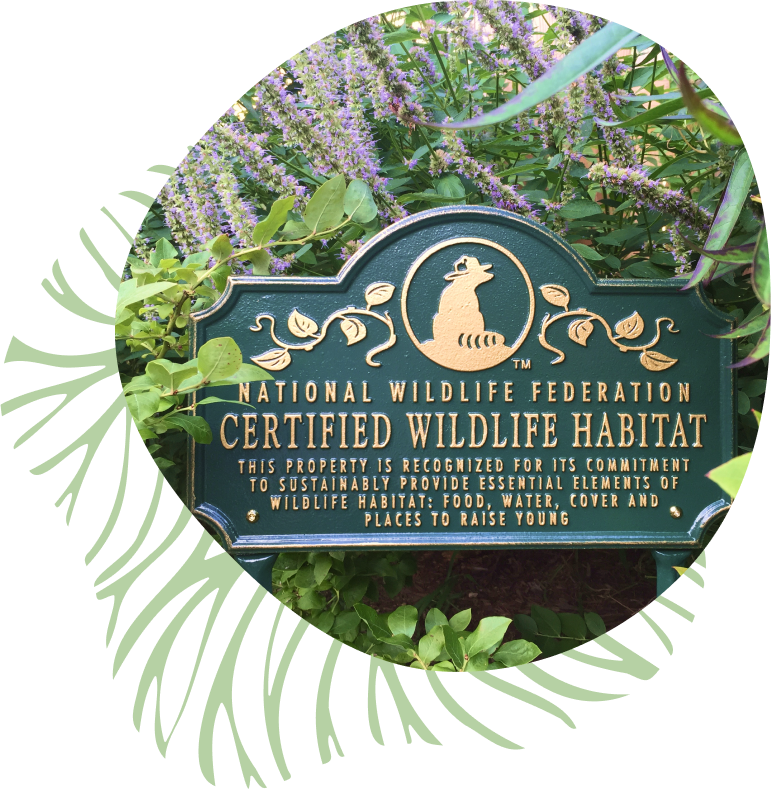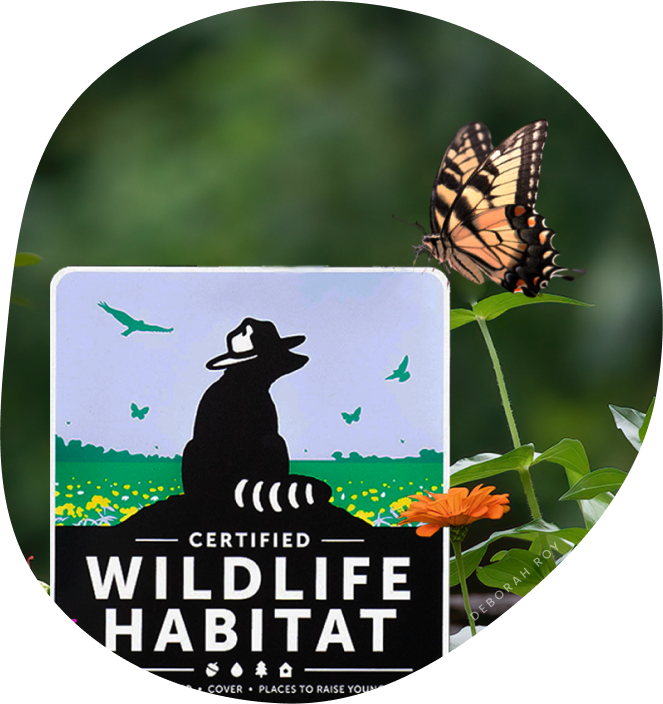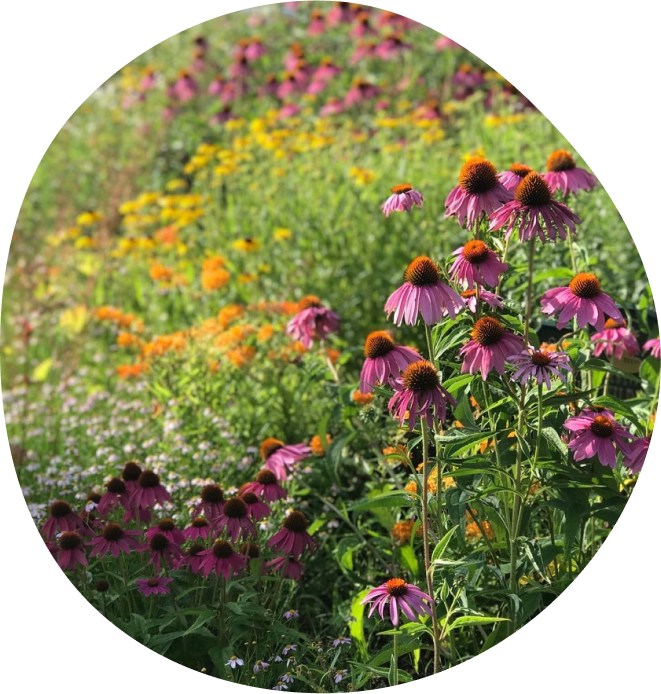Certified Wildlife Habitats
Transform your yard, nurture wild spaces
Every garden tells a story. Yours can be one of vibrant life, buzzing with pollinators, and teeming with local wildlife. As a Certified Wildlife Habitat®, your backyard becomes a haven for local birds, butterflies, and other wildlife.


Restoring Wildlife Habitat
In 1973, the National Wildlife Federation's Garden for Wildlife® program ignited a nationwide movement and millions of Americans have joined forces to create over 300,000 Certified Wildlife Habitats® providing critical food, water, cover, and shelter for countless species.
With your help, we're on our way to planting 1,000,000 Certified Wildlife Habitats® by 2030.
How Certification Works
Tell us how your yard or garden provides habitat and the National Wildlife Federation will recognize it as a Certified Wildlife Habitat®. NWF's certification program recognizes gardens that provide essential elements for local fauna: food, water, shelter, and space to raise young. It's not about size or perfection, but about dedication to creating a haven for nature's wonders.
Once certified, you can share your accomplishment and commitment to helping wildlife with your whole neighborhood by purchasing and posting an exclusive Certified Wildlife Habitat® sign.
The application processing fee and any sign purchases directly support NWF programs to protect wildlife and its habitat.

Creating a wildlife habitat garden to attract birds, butterflies, and other neighborhood wildlife is fun, rewarding, and makes a big difference. It’s easier than you might think. Here are the 4 basic elements your garden needs to thrive.
Food
Native plants provide food eaten by a variety of wildlife. Feeders can supplement natural food sources.
Water
All animals need water to survive, and some need it for bathing or breeding as well.
Cover
Wildlife need places to take shelter from bad weather and places to hide from predators or hunt for prey.
Places to Raise Young
Wildlife need resources to reproduce, and to protect and nourish their young.
Once you've established your garden, don't forget to maintain it in sustainable, natural ways to ensure soil, air, and water stay healthy and clean.